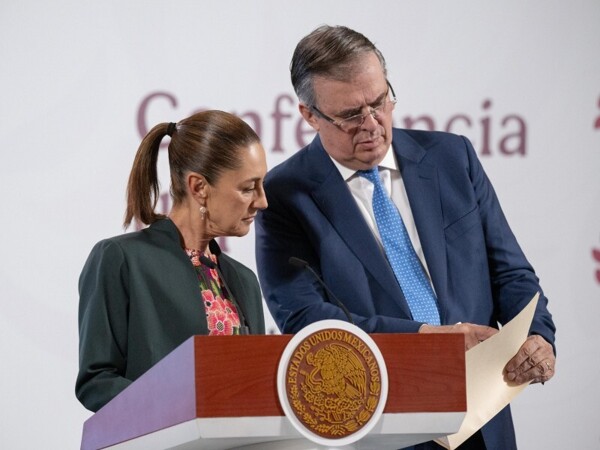
The Secretary of Economy of Mexico, Marcelo Ebrard, expressed his concern on Friday, March 7, due to the possibility that the United States may impose tariffs on aluminum and steel imported from Mexico. Ebrard pointed out that Mexico imports more metals than it exports to the United States, making the establishment of such tariffs inappropriate.
These measures would directly affect Mexican exports, which exceeded 13 billion 288 million dollars in 2023 and represent a significant part of the value chains in the United States. Products such as steel sheets, used in construction and the automotive industry, would be particularly harmed.
The proposed tariffs would impact countries like Mexico and Canada, major suppliers of steel and aluminum to the United States. In addition to steel sheets, other affected products would include steel tubes for industries such as oil and construction, steel bars for machinery and industrial components, and steel wires and cables used in the electrical and telecommunications industries.
The Ministry of Economy of Mexico reported that Secretary Marcelo Ebrard and Undersecretary of Foreign Trade, Luis Rosendo, will travel to Washington on Monday, March 10, to discuss the matter with U.S. officials. Exports under the treaty between Mexico, the United States, and Canada (USMCA) are expected not to be subject to tariffs at least until April 2.
For its part, the United States announced that tariffs on steel and aluminum would take effect on Wednesday, March 12, as part of an effort to reduce the deficit in these products. Mexico, being a net importer of steel and aluminum from the United States, seeks to be excluded from these tariffs.
The President of Mexico, Claudia Sheinbaum, mentioned during her conference on Monday, March 10, that efforts are being made to determine the outcome of the negotiations in the coming days. Uncertainty prevails in the face of Donald Trump's tariff threat, although it is unknown whether they will be canceled or remain in effect.














